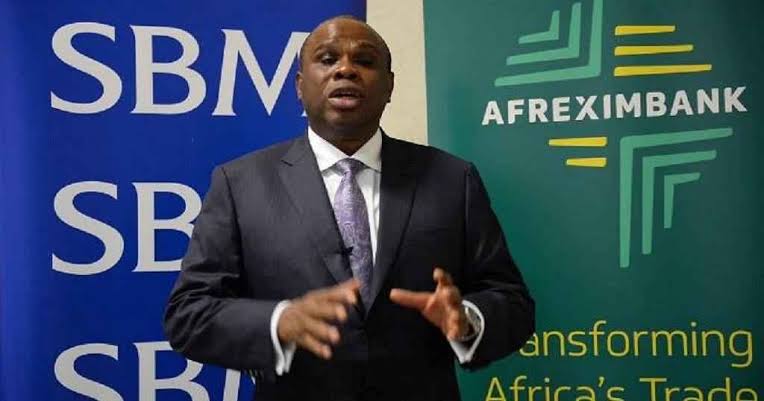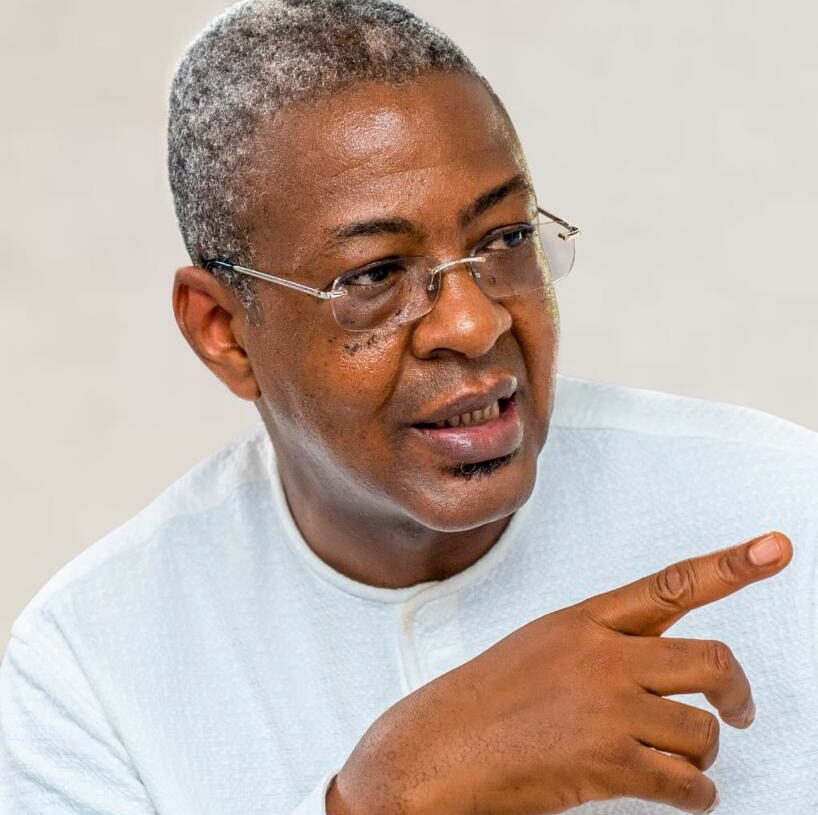Governor Biodun Oyebanji is unassuming. Those who have had an encounter with him always leave wondering how his modest demeanour and approach haven’t been altered by high office. It appears that, by design, he has also moulded his administration’s governance approach the same way— little noise, little distraction, focused on the delivery of set agenda.
And he is a keen listener and seeker of solutions, regardless of who it is from. Let me share a close encounter with the governor while he was still governor-elect. In preparation for the office, he attended this meeting with some stakeholders on how the state can generate more revenue. Those close to Oyebanji would know how he had always asked: “What happens when FAAC allocation doesn’t come?” I believe he uses this question to challenge revenue-generating agencies on the need to be more creative in their approach to generating revenue for the state. So, in that meeting, Oyebanji had been calm and almost silent all through– taking notes and observing– until one of the participants said: “There are ideas that can generate N15 billion monthly revenue for Ekiti”. Even when the meeting was virtual, you could feel Oyebanji quickly adjusting his seat, and curiously cutting in, “Ekiti can make N15 billion monthly revenue? You better bring up these ideas!” No, Oyebanji is not about increasing taxes on the individual or subjecting businesses to multiple taxations, but his philosophy of revenue generation is centred on building a bigger economy for everybody and this is clearly evident in his six-pillar agenda. I remember him asking this participant to put his thoughts into a document and a sub-committee was later tasked to look into it.
There is this popular saying here that governance is not rocket science, and everyone expects our politicians to turn things around just as soon as they assume office. But Joe Abah, a governance and institutions expert, argues that governance, indeed, is harder than rocket science. The 10-month experience with Oyebanji in Ekiti, however, aligns with the description of governance given by the Intergovernmental Panel on Climate Change (IPCC) as a “comprehensive and inclusive concept of the full range of means for deciding, managing, implementing and monitoring policies and measures”. On careful observation, one has seen how Oyebanji is deliberate about getting governance right. The six pillars agenda of his administration is rooted in the state’s 30-year development plan, and the expected outcomes are already spelt out, providing a clear guide and manual for everyone coming on board to work with the governor.
As soon as the governor inaugurated the newly appointed commissioners and special advisers into his cabinet in early August, they all proceeded to a three-day retreat. By the way, let me say there’s about 27.7% representation of women in Oyebanji’s cabinet. I am aware of the governor’s commitment to the 35% affirmative action policy and I trust this is seen in appointments into boards and other agencies of government. Let me also share that there have been a few adjustments to the ministries. There’s a new Ministry of Innovation, Science and Digital Economy. The Ministry of Transportation now stands alone, decoupled from Works. Also, what we have now is the Ministry of Arts and Creative Economy. There’s a new Ministry of Wealth Creation and Employment, and then a Ministry of Capacity Development and Training. There is also a new State Capital Development Authority, and the special adviser here is expected to work with local authorities to develop the state’s capital town of Ado Ekiti. There is a new Independent Project Monitoring Office, and the special adviser here reports directly to Mr Governor. Of important note are the offices of Gender Empowerment and Mobilisation, and Special Education and Social Inclusion. Let me add that Sports has been taken out of the Ministry of Youth Development, as promised by Oyebanji during the electioneering. A bill for the establishment of the Ekiti State Sports Commission is being considered at the state’s House of Assembly.
Advertisement
So, at the three-day retreat, Oyebanji came to further share his idea of governance with his cabinet members. Do I need to mention that for the three days, Mr Governor arrived at 9am, the starting time, and wouldn’t go until sometimes 6pm when the day’s event ended? Not only that, he participated fully, and on a couple of instances, he would interject during a presentation to quickly pass his assessment of the presentation. Experts were also on ground to assist with designing work plans in alignment with the administration’s six pillars. At the end of the retreat, Oyebanji asked commissioners to sign a performance charter, and reiterated that the continuous stay in government of the commissioners “is going to be premised on performance”. And that he “will not hesitate to remove anybody that is constituting him or herself into a clog in the way, I will not blink an eye because I owe a duty to God and to Ekiti people”.
The passion and dedication with which Oyebanji runs the government is almost second to none in recent times. A look into the activities of the administration has, arguably, shown that Ekiti is on the right path. In the southwest region, Ekiti is currently ranked the best state in ease of doing business. This is simply a result of policies put in place to allow a stress-free process of setting up and running businesses, especially small and medium-scale businesses, in the state.
From the recently published Q2 Budget Performance Report, N5.7 billion was realised from internally generated revenue (IGR) and when added to the IGR from Q1, we have N10.7 billion, representing a 68.2% performance of the N15.8 billion projected in the 2023 budget. On the capital expenditure, N4 billion was spent in Q2, and when added to that from Q1, we have N9.7 billion– a 28.5% performance of the estimated N34 billion in the 2023 budget. It is important to note that so far, the overall 2023 revenue performance is 56.6%, while expenditure performance stands at 44.5%.
Advertisement
Data from a recently published audit report containing the fiscal scorecard of the 16 local government areas of Ekiti state also revealed some major positives. It was established that audit queries, which are a major measure of the level of financial discipline, declined by a significant 50.22% from the previous year. This points to greater audit compliance and fiscal responsibility. The report also documented positive performance on the part of the state government in its relationship with the local governments. Specifically, it detailed the consistent remittance of a share of IGR to each of the local governments. The local governments also saw improved performance in the areas of contribution to state IGR, and tendering of revenue receipts for documentation and audit, albeit marginally, falling below set targets.
Below are key highlights across a variety of development metrics under the Oyebanji administration from around April to July:
Legislation: The governor has been particular about working closely with the state legislature to deliver impactful laws for the state. Between April and now, about six laws namely; Ekiti State Fire Service Department Law, 2023, Ekiti State Local Government Administration Law, 2023, Ekiti State Roads Fund Law, Ekiti Rural Access Roads Authority Law, Ekiti State Wealth Fund Law, 2023 and Ekiti State Local Government Staff Loans Board Law, 2023, have been passed.
Security: While Ekiti maintains a good ranking on the security chart, the government is not resting on its oars. It recently completed the Emergency Command Center (ECC) to provide a central point for incident reporting.
Advertisement
Rural Development: As part of the rural development plan, 43.4km farm roads have been constructed across six LGAs.
Power: The government has recorded a 90% completion of a 3.5MW Independent Power Plant (IPP), as part of its power infrastructure project.
Healthcare: In healthcare, the government has established 17 emergency operations centres (EOCs) across all the LGAs to improve discovery and response to health emergencies. It also expanded the Ulera Wa health insurance intervention from five LGAs to 10 LGAs in the state, with a total of 50,000 beneficiaries.
Education: On education, the construction of model schools is ongoing in Ikere and Ikole LGAs of the state. The government has also paid N800 million one month subvention arrears to tertiary institutions, and there is also the prompt payment of running grants to public primary and secondary school teachers.
Advertisement
As Oyebanji’s tenure progresses, Ekiti state is undoubtedly on a promising trajectory. His emphasis on innovation, inclusivity, and accountable governance demonstrates a steadfast commitment to the well-being and prosperity of all citizens. And how he carries on with almost no controversy, no needless hubris and no wasteful PR is a model to be admired.
The tangible strides taken across various sectors underscore the positive impact of his leadership. As Ekiti continues its journey under Oyebanji’s guidance, it is evident that the state is indeed in capable hands, moving towards a brighter future.
Advertisement
Owolabi is a senior special assistant to the governor on research and documentation
Advertisement
Views expressed by contributors are strictly personal and not of TheCable.
Add a comment







